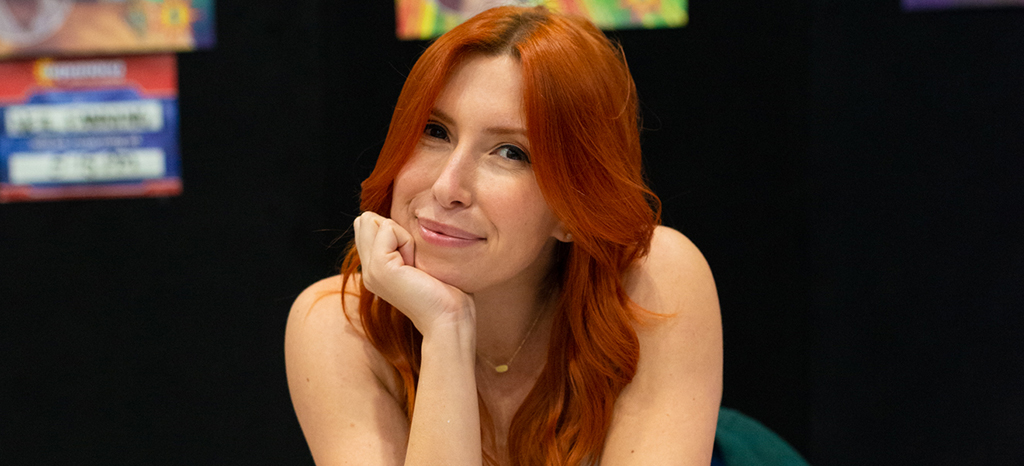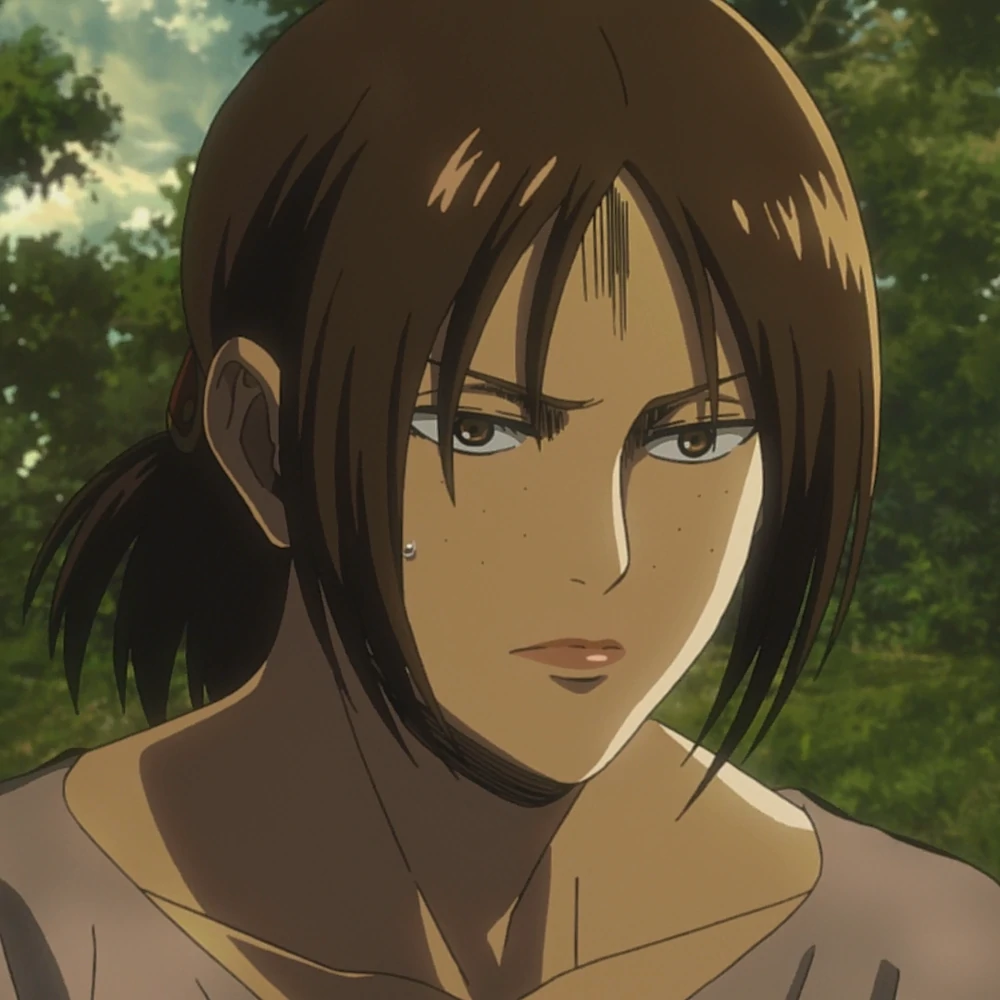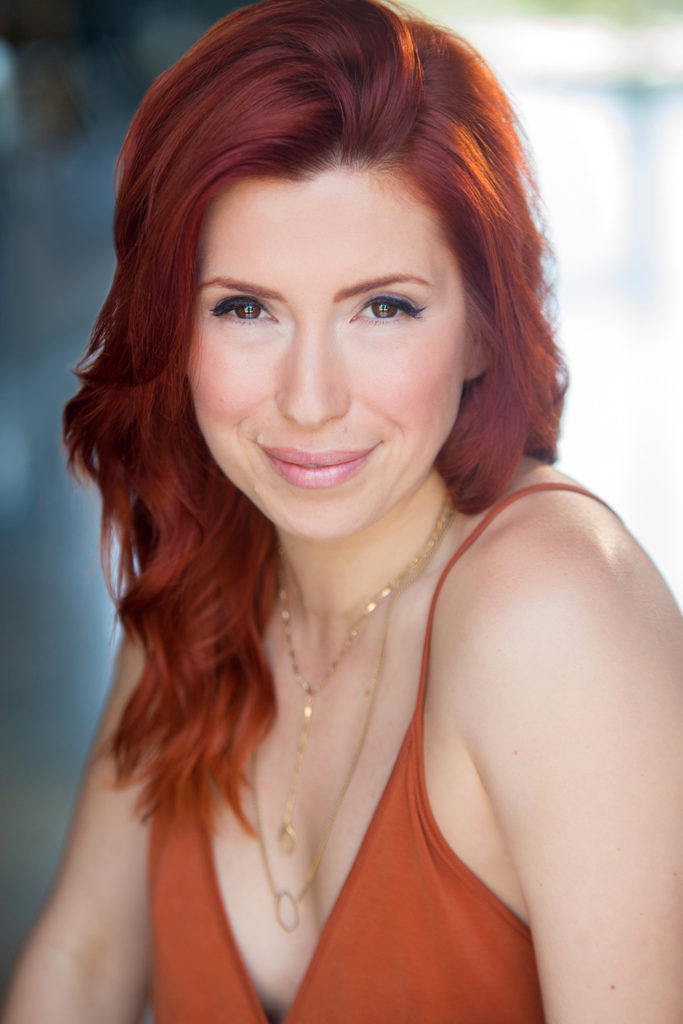
When the voice of My Hero Academia’s Midnight, Fruits Basket’s Arisa Uotani, Genshin Impact’s Rosaria, RWBY’s Winter Schnee, The Legend of Zelda: Breath of the Wild‘s Urbosa and Riju, and stacks more graced Brisnova 2022 with her presence at a Saturday Q&A panel, one question dominated the room: “How do you do it?”
With an IMDb profile the length of this article, Elizabeth Maxwell obliged Supa-Fans with a guide to making it in the voice acting and voice over industries.
Tip one: Move to Texas
The actor was in her late twenties when she moved from Los Angeles to Austin, Texas — which she described as having “an industry, but it’s not nearly as big as Los Angeles”. With a smaller pool of opportunities to choose from, Maxwell “needed to be a little bit more creative and think outside the box” with the roles she accepted.
“I wanted to be able to still continue to make a living as a performer, and I was talking to some friends, and they were like, ‘You have the acting training and are familiar with the genres of anime and video games and stuff. And you have a good voice. Why don’t you do voice over?’” Maxwell recounted. “And it was one of those light bulb moments: ‘How have I never thought of that before?’”

Urbosa (‘The Legend of Zelda: Breath of the Wild’)
After making the decision to move into voice roles, Maxwell discovered that she was in a “really great” location for voice over and voice acting. At the time she was starting out, Crunchyroll was based in Dallas — “which is not very far from Austin” — and Austin itself was home to Rooster Teeth, as well as “a number” of video game companies that she could market herself to.
Tip two: Market yourself
Contrary to advice given to many United States–based creatives, Maxwell did not find an agent before putting herself out there. Describing her method as getting “right into it myself”, she told Brisnova that after doing “a lot of research”, she “put together a demo reel, and then I started to aggressively market it to any and every company within a certain radius of where I lived that I knew hired voice actors”.
Maxwell joked that “it took some persistence” to get companies to respond to her demo reel emails, explaining, “I emailed Funimation once a month for eight months before I got brought in for my first audition.”
However, she reported, “Eventually, the momentum started and I started getting auditions.”
Tip three: Get the auditions, do the auditions, get booked
Though she originally finished her story at the audition stage — saying “the rest is history”— Maxwell recalled later the rest of the work that brought her to this point in her career.

Ymir (‘Attack On Titan’)
After a company sees a voice actor’s demo reel, the company can offer the actor a chance to audition for a part. The process from receiving an audition offer to being signed on to a part often depends on the company’s specific requirements, and it can feel like going through the motions. But there are lessons to be learned from this process as well.
Maxwell described a domino effect occurring after a voice actor succeeds in a large role.
Recalling her ‘big break’ as Ymir on Attack on Titan in 2014, she said, “A lot of the other directors at Funimation were very aware of the show. And if they were watching it, then they were immediately introduced to me in that sense.”
She continued that Attack on Titan is “partially responsible” for her work with Rooster Teeth, “because a ton of the animators and the directors at Rooster Teeth were big Attack on Titan fans, and they found out through the grapevine that I lived in Austin, and so, they were like, ‘Oh my gosh, you’ve got to come, and tour the studio. We’d love to meet you.’
“And so, I went and signed a bunch of their stuff, and then it was… ‘We have this character that we’re about to cast that we think that you might be good for. Would you like to read for her?’”
Maxwell concluded, “That’s how I got the audition [for Winter Schnee].”
Tip four: Accept roles outside your comfort zone
When a voice actor sends out their demo reel, they often send it to a company rather than for a specific role. The company can then get in touch with a role in mind for the actor to audition for, and it’s up to the actor whether they will accept the audition offer or not.
Maxwell revealed that after getting an audition offer, voice actors often don’t receive all the information about the part they’re auditioning for. She continued, “There are sometimes things where people might not want to work on a property, if it’s triggering to them in some way.”
 While Maxwell didn’t advocate for voice actors taking roles that would trigger them, she did recall a positive experience when her first ‘racy’ role was sprung on her at Funimation. Despite not being warned about the show’s adult themes, she kept an open mind about the character and broadened her range as a voice actor.
While Maxwell didn’t advocate for voice actors taking roles that would trigger them, she did recall a positive experience when her first ‘racy’ role was sprung on her at Funimation. Despite not being warned about the show’s adult themes, she kept an open mind about the character and broadened her range as a voice actor.
She explained that she was only told the role involved “eight hours of work”. The company didn’t give her a clue in advance about what the role was — either the show or the character.
“I get up there and I find out that the show is an adult show called Maken Ki 2,” Maxwell recounted. “I was not particularly happy about it at first, because I felt like my agency had been taken out of the process. It is a big deal to do your first adult anime if you’ve never done one [before], but the way that I got through it is I watched a little bit of it and my character…”
Maxwell summarised, “I fell in love with her.”
Tip five: Love your characters, but don’t be precious
While reminiscing on characters she’s portrayed since her first recorded role in 2008, Maxwell expressed the importance of getting to know the character an actor is voicing.
Refusing to name her favourite character that she’s voiced, Maxwell said, “I put so much of myself into my characters that I love them all for different reasons. And I could sit here and tell you what it is that I love about each one… but to say that I love one over the other, it’s almost impossible to do.”
However, she cautioned that no matter how much a voice actor might love their characters, the industry is not nearly as attached to its voice actors. That’s a reality she’s come to accept.
On Hollywood actors moving into voice parts, Maxwell said, “Selfishly, a lot of us are like… ‘Hey, we’re the ones who have been pounding the pavement and working to make our craft better for this — for the hope of booking a big role in a big movie like that and taking you to a different sphere.’ But, I mean, the truth of the matter is that… this has been happening since the dawn of VO.”
She added, “I appreciate that there’s some fan outrage, and that people recognise that it’s not the easiest thing to be replaced like that — to have opportunities taken away. But at the end of the day, I feel it is unfortunately a part of the industry, and we don’t own the characters.”

Winter Schnee (‘RWBY’)
Tip six: Take care of yourself
A voice actor’s job is essentially to talk for hours on end, and Maxwell recognised in her panel that humans only have so much capacity to sustain that. She acknowledged that four hours in the booth can get “very tiring”, not just physically, but mentally and emotionally.
As for physically wearing out your voice, Maxwell said it was “an unavoidable part of the job, but it’s made me pay more attention to hydration… And also, it made me look a lot more heavily into ways to support and warm up your voice”.
She joked, “As parental as that sounds…”
Emotionally, voice acting and convention work is rewarding for Maxwell, but her identity as an “extroverted introvert” means she sometimes needs a break.
“At the end of the day, I have to go home and recharge,” she shared. “With acting, we give so much of ourselves… I’ve honestly learnt a lot about self-care through doing this professionally.”
She described “the big thing for me” as carving out “that time during my day and making sure that I allow myself every night, an hour or two of doing something that is pleasurable and nourishing to me, and that has nothing to do with work”.
Tip seven: Learn how to dub properly
To aspiring voice actors, dubbing may seem like a somewhat banal duty that arises so often it doesn’t warrant a separate tip. But Maxwell described voicing a translation of a cartoon or anime as “its own unique challenge”, saying industry experts “joke” that “if you can do dubbing, you can do anything”.
She elaborated, “Dubbing is, in a lot of ways, the hardest to do, because you’re having to engage both the analytical and the creative part[s] of your brain.”
Because a cartoon or anime has already been animated in its original language before it’s dubbed, the translated performance must match the mouth movements of the characters onscreen. In contrast, voice acting for a work in its original language is usually undertaken before the animation process, so voice actors can choose the speed and rhythm of their words.
“You’re having to give a very realistic and emotionally rich performance while being like, ‘Okay, so, I have five seconds to say this line. Okay. Oh, and then they breathe. And then there’s a half-laugh, and then, okay, then I get two-and-a-half seconds?’” Maxwell recounted of her dubbing experience. “It can be extremely difficult — especially the battle stuff and especially the really emotional stuff, where they’re crying and there’s sniffling and stuff like that going on. But… the challenges [are] one of the reasons why I love it.”
Lead image by Steven Yee









